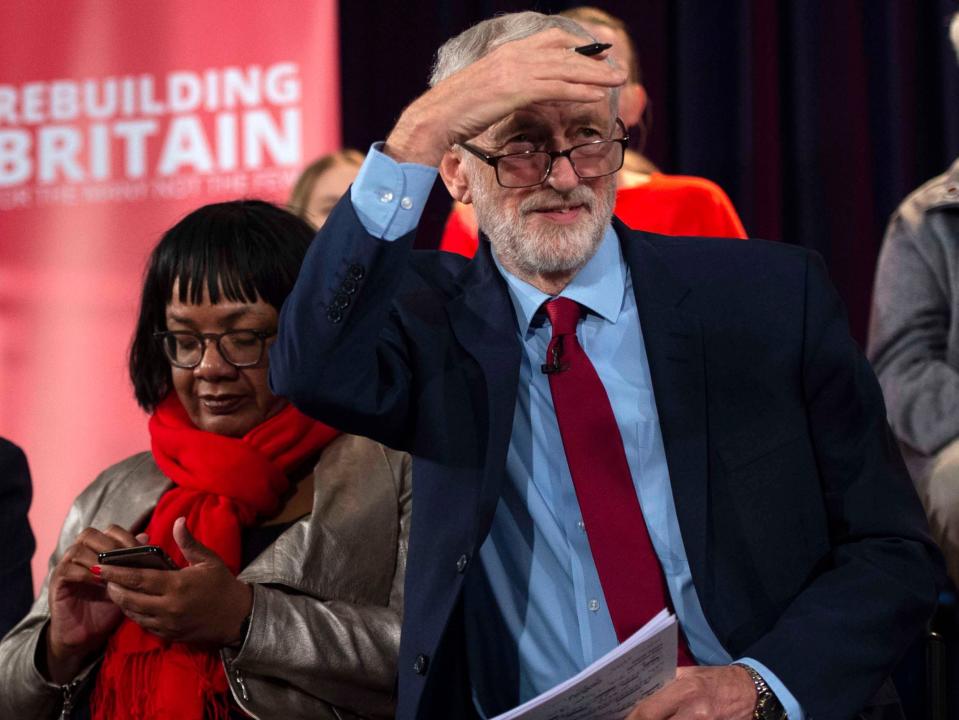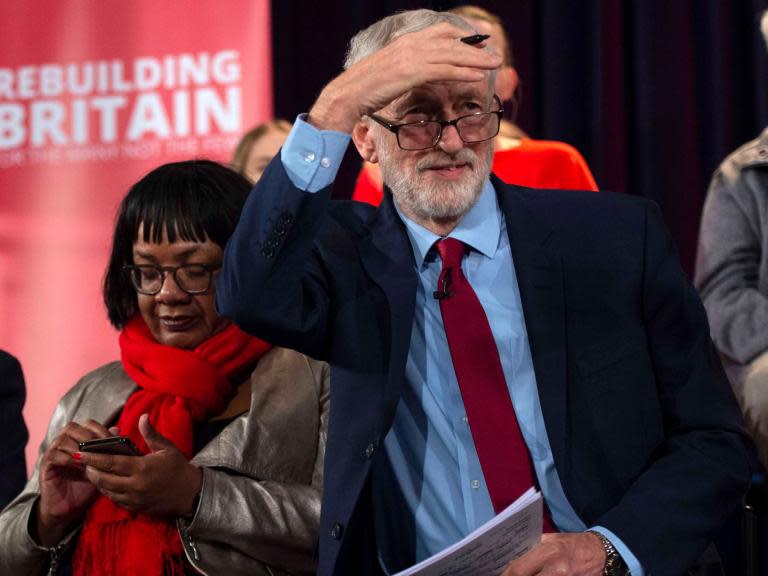With 71 days to Brexit, Jeremy Corbyn has launched his imaginary general election campaign
It was Vote Leave superbrain Dominic Cummings that first bequeathed to the world the idea of “alternative branches of history,” the notion that but for this or that, reality could very easily be different, so why should anyone, and especially Dominic Cummings, be expected to take the blame for the absolutely inevitable consequences of their actions? After all, somewhere, in a far-off galaxy in our infinite universe, it is theoretically possible there exists a United Kingdom that hasn’t been forced to burn in the explosion that followed Dominic Cummings’ successful mission to drive a car into David Cameron’s living room, and if you have the misfortune to exist in this galaxy and not that one then frankly it’s your own fault.
It is a concept that, at least until Thursday morning, existed only in the abstract, when Jeremy Corbyn summoned the media to a church hall in Hastings, to join him in his journey up the branch of history where he had won, and not lost, the confidence motion in the government the night before, and so he was launching a general election campaign.
Hastings, where Windrush blame lifeboat Amber Rudd won in 2017 by just 346 votes, is Labour’s number one target seat in the general election that no one appears to have told Corbyn isn’t happening. And so here he was, with his activists gathered, in front of a theatre curtain with a red ballot box style cross illuminated across it from the overhead spotlights. Afterwards – with 71 days to go until Brexit, and the need for cross party cooperation now of fundamental importance – he would be heading off to the local hospital to heal the swing voting sick.
On a personal note, it was considered something of an indulgence for me, a sketch writer, to come all the way to Hastings when there’s so much going on in Westminster, which should provide some context for the behaviour of the leader of the Labour Party, and the only man really, who can break the Brexit deadlock. It was a stunt so overwhelmingly childish it would have shocked no one had he strode out on to the stage in Power Rangers pyjamas.
Then there’s the fact he didn’t appear to know what day of the week it was. He read to the gathered masses from a script prepared for the wrong day. He spoke of the no confidence motion he had “tabled last night.” As he did so, shadow justice secretary Richard Burgon’s head shot round in blind panic. Had he tabled another one? If he had done, no one had told Richard Burgon. Or perhaps they had, but Richard Burgon had forgotten, probably at some point during the latest battle of the brutal morning war of attrition between Richard Burgon and his own shoelaces, now well into its third decade and as delicately poised as ever.
It was another episode of Corbyn’s unique brand of post-Brexit politics. Since Christmas, his strategy has been to say that it “doesn’t matter” if you vote Leave or Remain, austerity is hurting you just the same.
“I don’t want to live in a country that depends on food banks, payday loans and loan sharks. I want to live in a country that is positive, enthused and engaged with the future,” he said, to predictable cheers. A noble sentiment, no doubt, but one that is easier to utter if two and a half years ago you didn’t care “oooh seven out of 10” about a political earthquake that will make the economy smaller, and the capacity to deal with these problems smaller too.
As the media asked questions, his activists heckled, lending the occasion that sort of retro 2016-ish vibe, though it stopped short of outright booing.
Asked about the policy of a Final Say referendum, he did tiptoe a bit further than usual towards an idea on what should happen, that it shouldn’t be just a “rerun” of the last one, which marks the first tentative steps down the road first signalled by Len McCluskey, that Remain shouldn’t be on the ballot paper.
Which was an interesting teeing up of the next discussion. That in the general election that isn’t happening, it would be “the party” that decided the policy on Brexit, not him.
“Our policy going into the general election will not be decided by me,” he said. “I will be one person in the room.”
The party wants a second referendum, by a margin of at least 65 per cent, and they want Remain to be on the ballot paper.
And with that, we were done. The audience clapped. Next stop, the hospital – and perhaps into the spaceship that might carry him to the branch of history where it’s actually happening.

 Yahoo News
Yahoo News 

